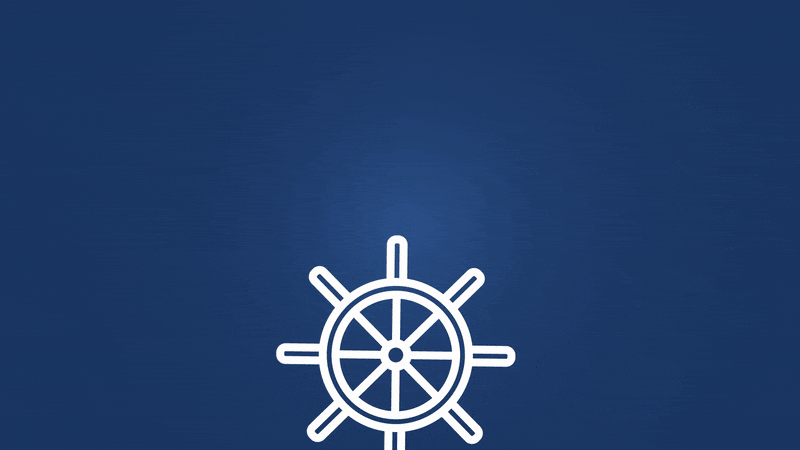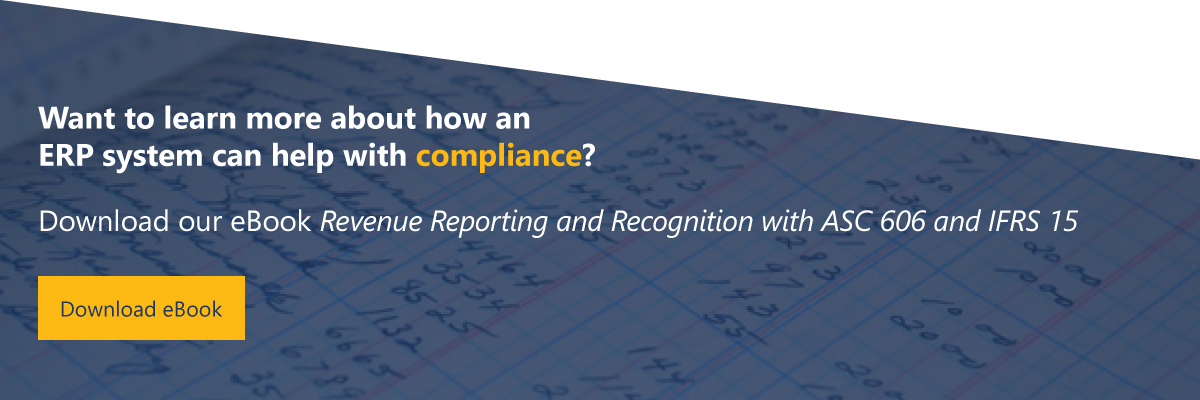ERP software helps compliance regardless of whether you’re running multiple branches, a smaller start-up, or a company looking to streamline processes post-merger. No matter what stage you’re at, it’s critical to invest in software built to deal with the complexities of compliance in today’s competitive landscape.
With technology accelerating growth at such a rapid rate, you may feel that regulatory compliance is an almost impossible feat with constantly changing standards. Accounting standards, regulations, and privacy legislation keep changing in a race to keep up with the advancements.
This is likely just the beginning, and trying to manage, track and adhere to regulations will require dedicated teams, as well as dedicated software. Failing to comply with regulations or data protection legislation—and industry-specific rules and accounting standards—can result in financial penalties that can have crippling effects on companies. It’s not worth the risk.
Traditionally, smaller organizations could track compliance through databases and spreadsheets. However, these systems are rarely properly centralized. The process of extracting and consolidating data from spreadsheets can span months rather than days. Industry-specific ERPs centralize much of this administration, automating the consolidation of information needed to prove compliance.
ERP software helps compliance in many different ways. In this blog, we will take an in-depth look at the three most important:
- Increases visibility and control
- Protects the security and control of your data
- Enhances traceability and quality control
1. Increases visibility and control
To prove compliance, you need visibility and control of your admin processes. The easiest way to do this is with centralized ERP software. Many people focus on time and money saved by using an ERP (for a good reason!), but the visibility it grants companies is just as important. Implementing an effective solution means that you can control data with ease and accuracy. Also, it is possible to access reports and show compliance in real time.
Most ERP software will come equipped with a range of reports. If you want to ensure you have the right insights and visibility, it’s best to partner with software providers who work in your industry. For instance, if you currently work in the healthcare industry and use Microsoft Dynamics, then look for supply chain software that builds on this functionality rather than starting from scratch. The main advantage of using industry-specific software is that reports and processes are designed with your industry’s compliance standards in mind.
Other elements you should look for when it comes to visibility and control are built-in dashboards that are easy to understand and navigate. It’s also possible to get software that creates forecasts that may change the way you do business. Because the ERP connects to so many aspects of your business, it can make accurate forecasts which would otherwise be impossible to attain.
There’s no magic formula to remaining compliant, and the software can’t achieve it independently. However, having the software is a step in the right direction, making the rest of your journey towards compliance that much more pain-free. Before you purchase your ERP, it may be wise to check out our blog on building a comprehensive ERP checklist, which gives you a step-by-step outline of how to make a list specific to your requirements (compliance is, after all, just one of those requirements).
2. Protects the security and control of your data

Discussions around data security and the protection of that data are not going away anytime soon. Companies will have to invest in software that can securely manage the information they use daily. Canada looks set to introduce new privacy legislation, and this follows in the footsteps of legislation such as GDPR in Europe. As technology advances, data control and security will grow rather than shrink in priority for those trying to prove and maintain compliance.
It should be possible to tailor the security features to meet your requirements. There are standard security features you should look for:
- Access controls allow you to give different team members different levels of authority within the system. You can keep track of who has access and to what they have access to. For instance, perhaps only the leadership team needs to access consolidated reports, and maybe only the accounts team should have the ability to dig into historicals.
- Password control is a pretty standard feature, but it should be possible to tailor this feature to roles or teams. For example, you might want to use the same access password for the admin team or want everyone to have an individual login. It depends, but having flexibility can be useful.
- Segregation of duties should be possible so that it’s possible to double-check transactions and invoices and make sure all information is accurate. For instance, it’s wise to have transactions authorized by a person not directly involved in the transaction. The salesperson might be the one to process the transaction, but the accounts team may be the ones who need to sign off on it. It’s possible to automate this within your system so that the right people are notified. This is one way to check all transactions are compliant before finalization.
- Data encryption is the bread and butter of data security. Your ERP system must have this to ensure any level of protection against breaches in data.
- Audit trails are crucial to showing compliance, and these must give a detailed breakdown of data changes and the users responsible. This holds the team accountable for anything they do within the ERP system and is an extra layer of protection against any kind of malpractice. It’s also handy if anything ever does go wrong, as it will be possible to trace the origin of any inaccurate information quickly and efficiently.
3. Enhances traceability and quality control
The supply chain is a critical component of business for many businesses, but it’s incredibly crucial for compliance within the manufacturing and health care industries. In the worst-case scenario, inventory tracking issues within healthcare facilities can lead to lost lives, so it’s no wonder an ERP plays such an essential role in this industry.
Traceability is similar to visibility and transparency, but we have separated them because it deserves a special mention of compliance-regulated supply chains. Most ERPs provide solid visibility and transparency of data and processes but can’t always manage the inherent complexities of supply chain dependent industries. It’s best to invest in software that is built to handle supply chains in your industry. Preferably, look for a provider who can show you case studies that prove their software’s functionality in your industry.

